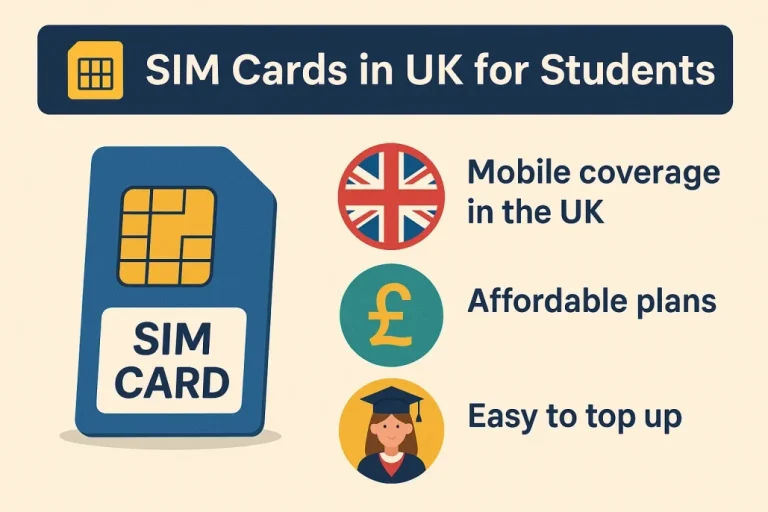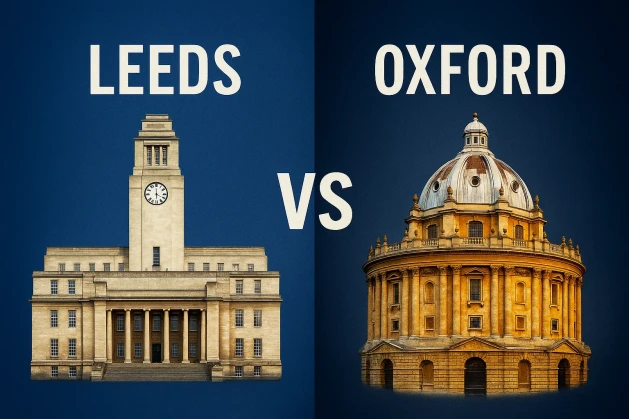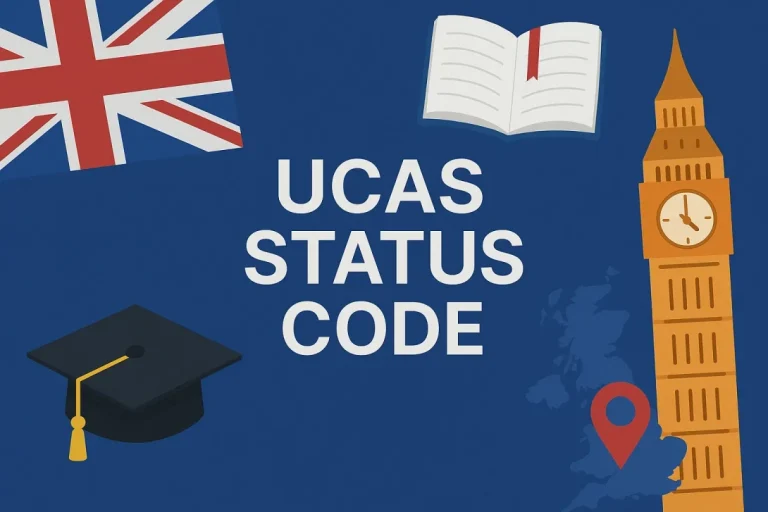Student life is full of challenges and a feeling that is surreal. Today, we have come up with another important topic to experience student living in the UK. If you are someone who is planning to study in the almighty United Kingdom, then you should know what UCAS is. UCAS is the most important piece of the system that students should be aware of.
From clearing to code, UCAS has been divided into multiple parts. That’s why in this blog we have covered what UCAS clearing is and related information. Whether it is student guides or student accommodation in UK, experts at Uninist ensure to cover every angle. So, let’s not wait for more and get right into what you should know about UCAS clearing!
What is UCAS Clearing and Why Clearing Exists?
UCAS is a system that matches applicants who don’t already hold an offer with university courses that still have vacancies. In layman terms, if you didn’t get the offer you wanted or you have applied late, clearing gives you a second chance to find a university course with available vacancies. The universities publish available courses in UCAS clearing search tool.
You must have heard of UCAS Status Code, right? Well, just like this, UCAS clearing is also a part of the system. To give you a quick context, clearing helps universities fill remaining spots. While helping universities, students can easily secure a place when their initial plan changes. For example, if your grades were lower than the cut-off, or if you applied late, or if you simply changed your mind about course/city then UCAS clearing can help you in finding a university.
Who can use UCAS Clearing?
Not everyone is allowed or eligible to use this system. The UCAS Application is a detailed process where you must know everything. Here are the eligibility criteria to use UCAS clearing:
- If a person didn’t get any offer from the universities or has missed the conditions of a conditional offer. So, it means that your place wasn’t confirmed that makes a student eligible.
- If a person missed the deadline or has applied after the deadline, then those applications are entered into clearing.
- If someone declines the university or course he/she got and wants a different course then they can enter the clearing system.
Key Dates You Must Know for 2025
2025 is the year where everything is set to change for students. So, if you are are planning to apply, here are the details for the UCAS Deadline for 2025 you must know:
- Clearing Opens: On 5 July 2025, vacancies are available in UCAS search. So, you can view which places are left unfilled.
- A-level Results Day: 14 August 2025 is the date you can access your UCAS ub details and clearing ID from this day. The best thing about UCAS is that they give time windows for different actions.
- Adding a Clearing Choice: If you are eligible, then you can add a clearing choice in your UCAS hub on 14 August 2025. So, check your eligibility and don’t miss the date.
- Last Date: The last date for clearing choice is 20 october 2025, after that you normally can’t apply for that year courses. So, you will have plenty of days to add your choices.
Additional Note: Universities sometimes keep updating about vacancies through summer and early autumn, but the biggest opportunity window is right after results day.
How to Prepare Before the Result Day?
Result days are often filled with nervousness and excitement. Here are a few steps to be prepared for the big day:
- Collect your Details: Be prepared with your details like UCAS personal ID, UCAS track login, phone, charger, quiet space, and any ID you might need. Keep your predicted grades and exam history written down.
- Make a Short Lift of Target Clearing Courses: Pick at least 6-10 courses across 2-3 universities. Classify your list into three sections, first: your ideal realistic option, second: your backup colleges and courses, and third: safety colleges and courses. Use UCAS clearing search to find courses and note UCAS Codes like courses codes and institution codes.
- Prepare a Short Pitch and Documents: Make a short pitch about 20-30 seconds to summarise your qualification, why you want the course, etc. Also be prepared with necessary documents like your UCAS ID, exam grades, and a copy of your personal statement summary.
- Check Finances and Accommodation: It is important to know all the necessary information about how UCAS Course Selection matters, rent, quick student loan basics, and deadlines for student finance changes.
What to do on Result Day?
As said before, result days have something different about them. But what to do once the result is out? Here are the steps you have to follow on result day:
- Sign-in to UCAS Hub: Sign-in to check your application status and whether you are automatically eligible for clearing. If you have a clearing ID it will appear in your UCAS hub.
- If you don’t have Any Offer: Use the UCAS clearing search to find the vaccines and call or message the university on your shortlist. But make sure to not rush calls, listen and then decide.
- University says they can Offer you a Place: If the university says that they can offer you a place, then they will give you the permission to add the course as a clearing choice. But make sure to only add it after the university tells you to.
Additional tip: Universities use phone, live chats, and online forms during clearing. Phone calls are still the fastest way to secure a place, but be calm and prepared.
How to Add a Clearing Choice in UCAS Hub?
Now the question arises how to actually add the clearing choices in UCAS hub. Here are the steps for adding your clearing choices well:
- Log into your UCAS hub and go to your choices.
- Click on add clearing choice.
- Enter the University intuition code and the course exactly as the admission team tells you.
- Only add the choice after the university has given you clearance, adding without permission can cause issues.
What to do After You Accept the Offer?
The process doesn’t end at accepting an offer. After all, you have to plan a life after acceptance. After acceptance, here is what you need to do:
- Follow the Enrolment Details: When your place is confirmed on the UCAS track, your university will send you enrolment and next-step details. In a simple sense you don’t have to do anything else on UCAS itself, but start thinking of the accommodation, travel, course material, etc.
- Update Student Finance: If your course or university has changed you have to update finances. The student finance application is separate from UCAS, missing this can delay funding.
- Keep Evidence: Keep evidence of the offer and any email, if you accepted a place but later want to change it, then immediately contact the uni or UCAS. There are formal ways to withdraw and change.
Conclusion
The United Kingdom has been working day and night to make sure students get ease in the whole process. One of the important features of UCAS is UCAS clearing. From what is UCAS clearing to what to do after the offer, we have coerced every necessary detail. So, make sure you know everything before you make a move to the UK. Overall, things like UCAS clearing, tracking, etc are the foremost steps in your journey of reaching the UK for studies, follow it very carefully. And, to figure out your next home in student accommodation in UK, don’t forget to visit Uninist today!
FAQ
-
Can International Students Apply for Clearing?
Yes, the clearing option is visible to applicants who have a valid UCAS application and don’t hold an offer.
-
What is UCAS Clearing?
UCAS clearing is a system which helps students who are not offered any course or college, if there are vacant seats. Even if you desire to change your course to college you have to take part in this clearing process after the university allows you.
-
How to Add Clearing Choice in UCAS Hub?
Here are the steps for adding clearing choice in your UCAS hub:
1. Log into your UCAS hub and go to your choices.
2. Click on add clearing choice.
3. Enter the University intuition code and the course exactly as the admission team tells you.
4. Only add the choice after the university has given you clearance, adding without permission can cause issues. -
How to Know You Are Eligible for Clearing?
You can determine if you are eligible or not for the clearing process. If a person has missed the deadline, didn’t get any college offered to a person, and wants to change their course or college, then they are eligible for clearing.
-
What to do If You Want to Change the Course in the UK?
If you desire to change the course you got in the UK, then you have to take the university’s permission first and then take part in the UCAS clearing process.
-
What are the Key Dates for UCAS Clearing in 2025?
Clearing opens on July 5, 2025. A-level results day is on August 14, 2025, and the last date to apply for Clearing is October 20, 2025.
-
What Should I Do Before UCAS Results Day?
Prepare a list of target courses, gather necessary documents, and ensure your finances and accommodation details are ready.
-
What Happens on Results Day for UCAS Clearing?
Log into UCAS Hub to check your status. If eligible for Clearing, use the Clearing search tool to find open courses and contact universities.
-
What to Do After Accepting an Offer in UCAS Clearing?
Confirm your place, update your student finance, and prepare for enrollment by organizing accommodation and course materials.
-
Can I Change My Course After Accepting an Offer?
If you change your mind after accepting an offer, you can contact the university or UCAS to explore withdrawal and course change options.








